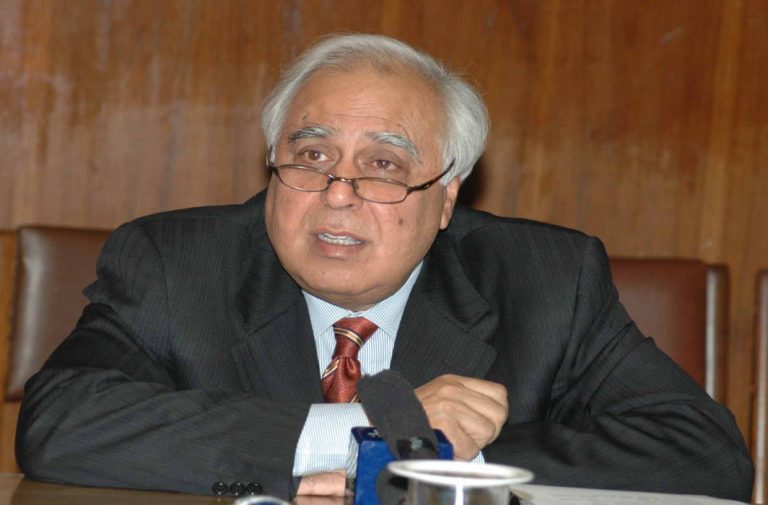
The Supreme Court bench of Justice NV Ramana, Justice Subhash Reddy and Justice BR Gavai today heard arguments in a batch of petitions against the Kashmir lockdown which has now crossed 100 days since the August 5 abrogation of Article 370.
The court has set final hearing on the petitions for December 10, and directed the Centre to submit counter affidavit by November 22.
Senior Counsel Kapil Sibal raised several questions in his arguments before the court:
- Here there is nothing to do cross border terrorism. This cross border terrorism is happening prior to Art 370 abrogation.
- Most of the people in Kashmir are peace loving. Their fundamental rights have to be protected. You can only restrict those who are trouble makers and not the entire community living there.
- There is a way to interpret Article 19. How does blocking internet do any good. Social media does. So you can block social media, not internet in whole.
- Why was it necessary to ban landlines, it’s essential for communication.
- I can speak to any one I want, how can you stop that. Fake news can be restricted. How can using telephone have an impact on public order.
- Put restrictions on those people who are disturbing peace, you know who are the elements who can disturb the peace.
- If I want a medical facility, and my telephone doesn’t work. How will I reach hospital. There is no telephone connection for medical emergency.
- How do I go to bank , how do I get my transfer?
- All essential services have been completely stopped.
- Power of Section 144 is supposed to be used for the welfare of people.
- You can not completely stop movement of speech & movement. You can only restrict it.
- Post paid mobile works, but even today pre-paid doesn’t work.
- They say higher secondary schools have opened but children are still not going.
- Reasons & justifications for placing such order was never reflected upon.
- Section 144 clearly says there should be something material. Nothing happened and they presumed. People there are peace lovers and still without considering that they passed the orders without any justifications
- The order of the government doesn’t fall under the provisions given in the Telegraph Act because there power is restricted under 5(2) of Telegraph Act – Power for Government to take possession of licensed telegraphs and to order interception of messages.
- Review committee has to see whether your orders are consistent with the Act.
- What can an email do, it’s only between only 2 people. What you are blocking is information. All social media can be blocked, because it is mass communication, as mass communication can result in fake news as it happened earlier also.
- But you can not block a telephone line , you cannot block email
- You (Govt.) should have determined what is the least restrictive action here. If you are interfering with Article 19, you need to apply this ultimate test.
- There are central govt agencies living in Kashmir. Those employees don’t stay near these establishments. They stay in places where there is no transportation. You should have made arrangements for their safety when you imposed restrictions. This is what the state is supposed to do in the context of Art 19.
- ‘No public movement’ – that’s how it was implemented.
- If public movement was allowed, why was I stopped at the airport.
- This is nothing to do with 19(2). This is absolute Prohibition.
- They say, it doesn’t apply to ambulances. But if there is no telephone connection how will I call ambulance.
- You curtail the right of one person, you protect the right of other person. You need to balance it.
- This is the heart of the argument I am raising with respect to Art 19.
- The order must speak for itself. The affidavit cannot speak for the order. You have to see the order and see the material present in it.
- You could have clearly mentioned as to how if you block telephone lines, would it help in maintaining peace/order.
- This was in fact done to prevent others from getting to know as to what is happening in Kashmir.
- The service under Ayushman Bharath, a govt scheme, was down.
- We cannot touch Fundamental rights, in the interest of state.
Mr. Sibal concluded his arguments, seeking guidelines to be laid down by the court so that this kind of lockdown is not repeated anywhere in India.
Arguments on behalf of Journalists –
- Security personnel are restricting journalists even though they have pass.
- Journalists are also manhandled by security personnel.
- There is a clear violation of Article 19 & 21 of our Constitution.
- Reasonableness and testing – that is the soul of the Article 19.
— India Legal Bureau

